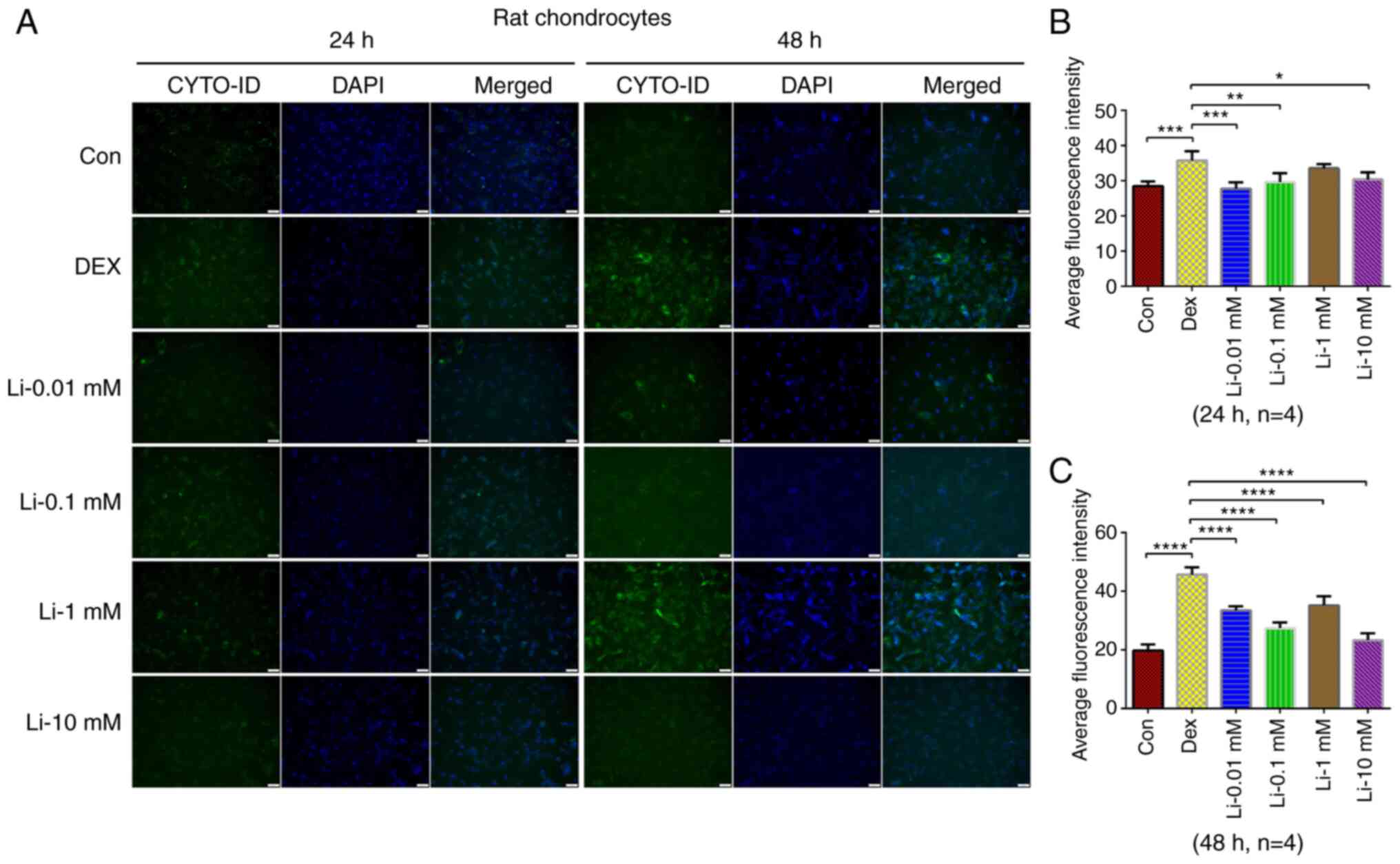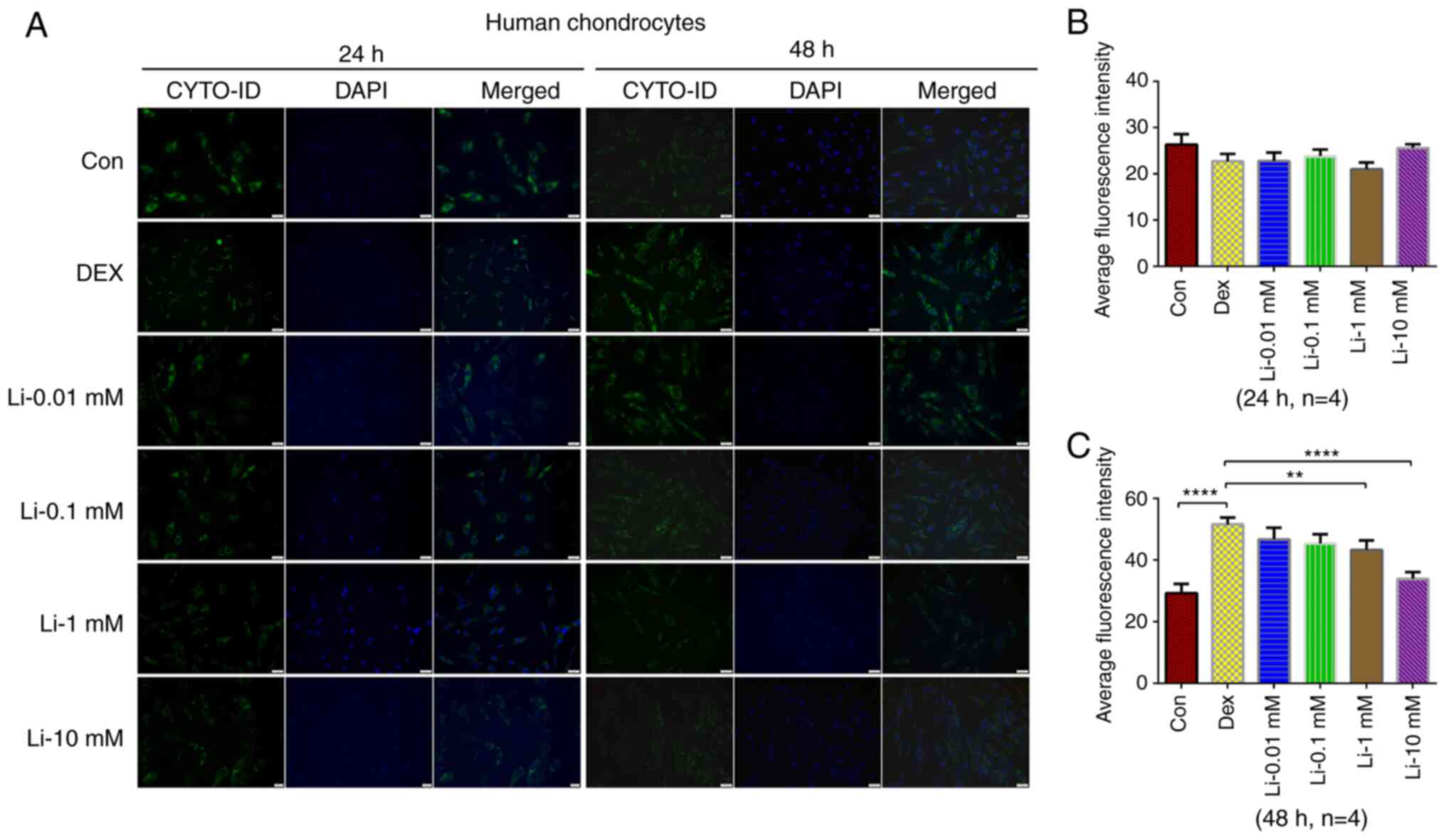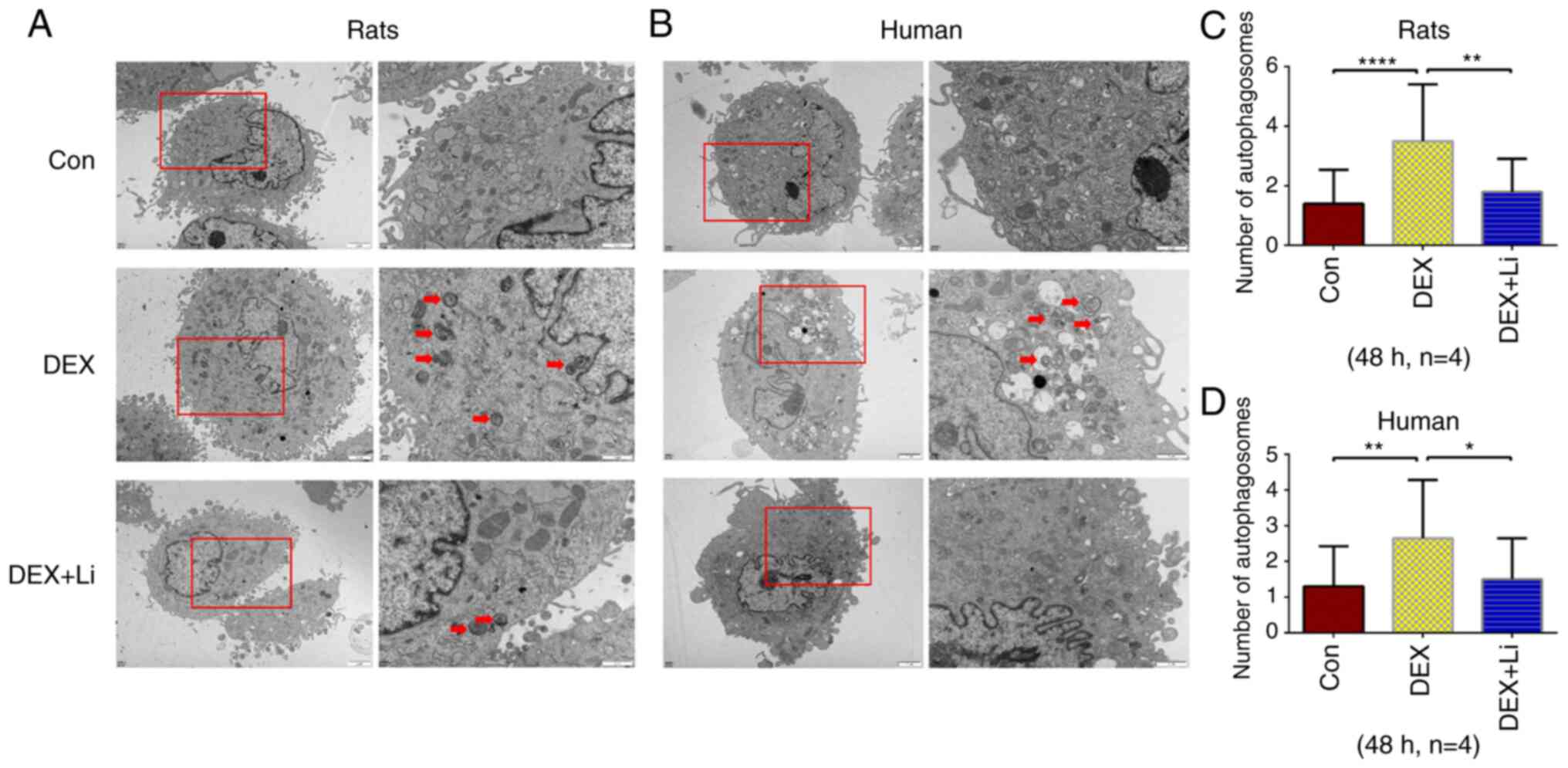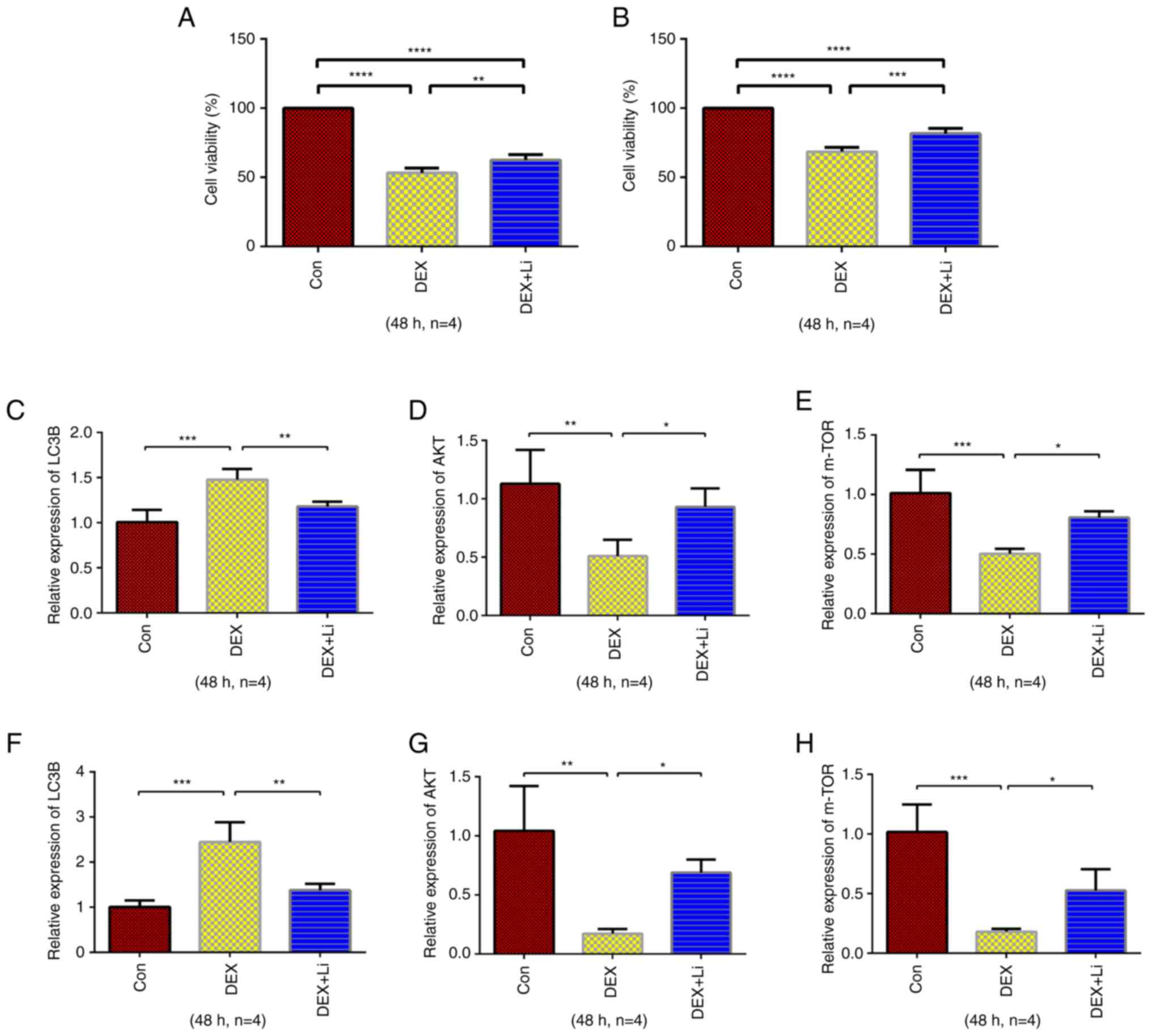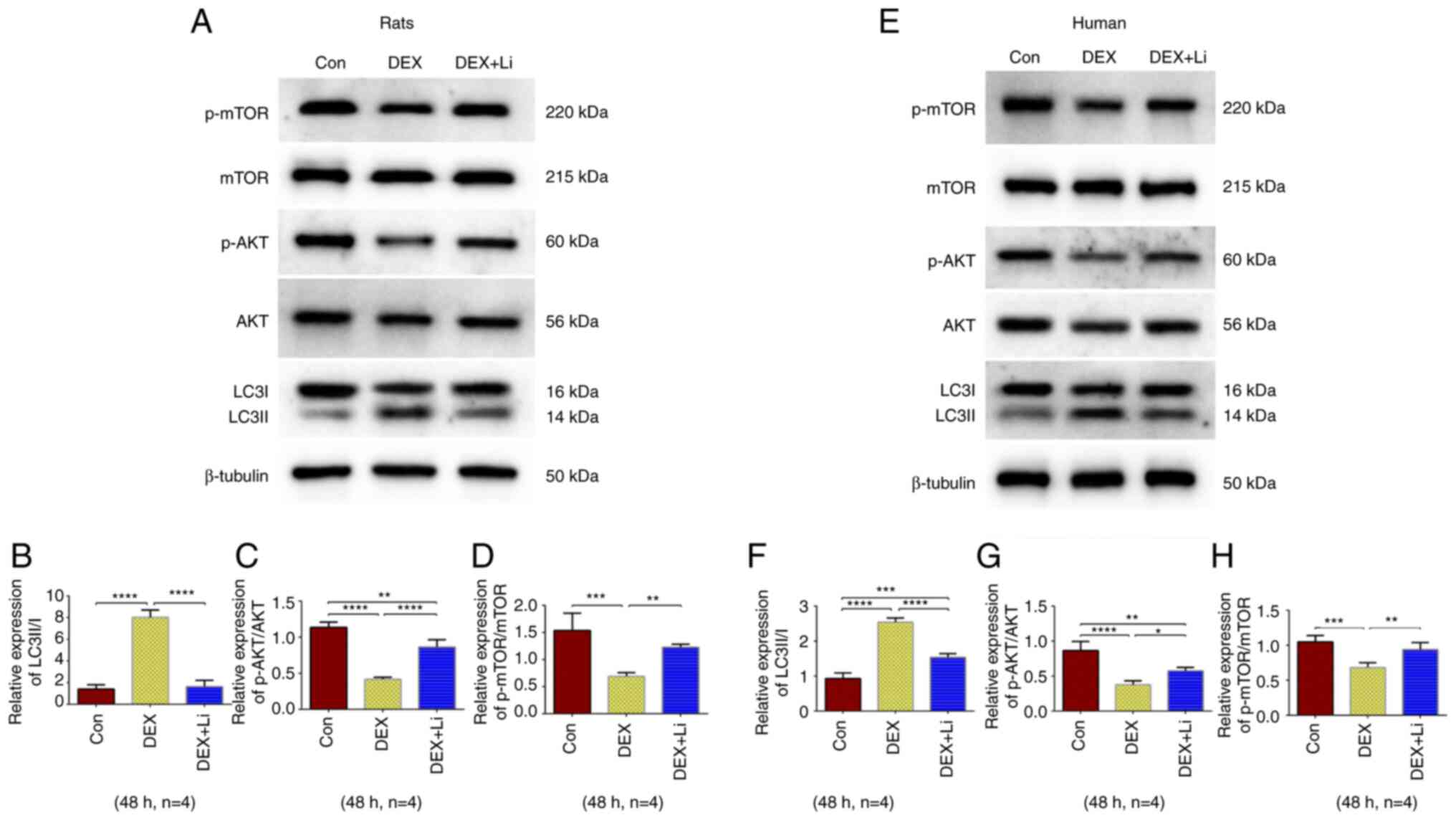|
1
|
Huscher D, Thiele K, Gromnica-Ihle E, Hein
G, Demary W, Dreher R, Zink A and Buttgereit F: Dose-related
patterns of glucocorticoid-induced side effects. Ann Rheum Dis.
68:1119–1124. 2009. View Article : Google Scholar : PubMed/NCBI
|
|
2
|
Canalis E and Delany AM: Mechanisms of
glucocorticoid action in bone. Ann N Y Acad Sci. 966:73–81. 2002.
View Article : Google Scholar : PubMed/NCBI
|
|
3
|
Xu H, Zhang S, Xie J, Lei Y, Cao G and Pei
F: Multiple doses of perioperative dexamethasone further improve
clinical outcomes after total knee arthroplasty: A prospective,
randomized, controlled study. J Arthroplasty. 33:3448–3454. 2018.
View Article : Google Scholar : PubMed/NCBI
|
|
4
|
Xu B, Ma J, Huang Q, Huang ZY, Zhang SY
and Pei FX: Two doses of low-dose perioperative dexamethasone
improve the clinical outcome after total knee arthroplasty: A
randomized controlled study. Knee Surg Sports Traumatol Arthrosc.
26:1549–1556. 2018. View Article : Google Scholar : PubMed/NCBI
|
|
5
|
Tammachote N and Kanitnate S: Intravenous
dexamethasone injection reduces pain from 12 to 21 hours after
total knee arthroplasty: A double-blind, randomized,
placebo-controlled trial. J Arthroplasty. 35:394–400. 2020.
View Article : Google Scholar : PubMed/NCBI
|
|
6
|
Annefeld M: Changes in rat epiphyseal
cartilage after treatment with dexamethasone and
glycosaminoglycan-peptide complex. Pathol Res Pract. 188:649–652.
1992. View Article : Google Scholar : PubMed/NCBI
|
|
7
|
Zhao Y, Zuo Y, Huo HJ, Xiao YL, Yang XJ
and Xin DQ: Glucocorticoid induced autophagy in N1511 chondrocyte
cells. Eur Rev Med Pharmacol Sci. 18:3573–3579. 2014.PubMed/NCBI
|
|
8
|
Zhao Y, Zuo Y, Huo H, Xiao Y, Yang X and
Xin D: Dexamethasone reduces ATDC5 chondrocyte cell viability by
inducing autophagy. Mol Med Rep. 9:923–927. 2014. View Article : Google Scholar : PubMed/NCBI
|
|
9
|
Xue E, Zhang Y, Song B, Xiao J and Shi Z:
Effect of autophagy induced by dexamethasone on senescence in
chondrocytes. Mol Med Rep. 14:3037–3044. 2016. View Article : Google Scholar : PubMed/NCBI
|
|
10
|
Wu C, Zheng J, Yao X, Shan H, Li Y, Xu P
and Guo X: Defective autophagy in chondrocytes with Kashin-Beck
disease but higher than osteoarthritis. Osteoarthritis Cartilage.
22:1936–1946. 2014. View Article : Google Scholar : PubMed/NCBI
|
|
11
|
Huang Z, He J and Hong Z: Advancement of
research on the regulation of PI3K/Akt/mTOR signaling pathway for
prevention and treatment of osteoarthritis. J Chin Orthop Trauma.
31:40–44. 2019.
|
|
12
|
Li M, Gao P and Zhang J: Crosstalk between
autophagy and apoptosis: Potential and emerging therapeutic targets
for cardiac diseases. Int J Mol Sci. 17:3322016. View Article : Google Scholar : PubMed/NCBI
|
|
13
|
Heras-Sandoval D, Pérez-Rojas JM,
Hernández-Damián J and Pedraza-Chaverri J: The role of
PI3K/AKT/mTOR pathway in the modulation of autophagy and the
clearance of protein aggregates in neurodegeneration. Cell Signal.
26:2694–2701. 2014. View Article : Google Scholar : PubMed/NCBI
|
|
14
|
Motoi Y, Shimada K, Ishiguro K and Hattori
N: Lithium and autophagy. ACS Chem Neurosci. 5:434–442. 2014.
View Article : Google Scholar : PubMed/NCBI
|
|
15
|
Kazemi H, Noori-Zadeh A, Darabi S and
Rajaei F: Lithium prevents cell apoptosis through autophagy
induction. Bratisl Lek Listy. 119:234–239. 2018.PubMed/NCBI
|
|
16
|
Dossymbekova R, Bgatova N, Tungushbayeva
Z, Sharipov K, Taneyeva G, Kydyrbaeva A and Solovieva A: Effect of
lithium carbonate on autophagy and proliferative activity of
isolated hepatocytes. Biochem Biophys Res Commun. 528:343–346.
2020. View Article : Google Scholar : PubMed/NCBI
|
|
17
|
Li Q, Li H, Roughton K, Wang X, Kroemer G,
Blomgren K and Zhu C: Lithium reduces apoptosis and autophagy after
neonatal hypoxia-ischemia. Cell Death Dis. 1:e562010. View Article : Google Scholar : PubMed/NCBI
|
|
18
|
Zhang X, Heng X, Li T, Li L, Yang D, Zhang
X, Du Y, Doody RS and Le W: Long-term treatment with lithium
alleviates memory deficits and reduces amyloid-β production in an
aged Alzheimer's disease transgenic mouse model. J Alzheimers Dis.
24:739–749. 2011. View Article : Google Scholar : PubMed/NCBI
|
|
19
|
Livak KJ and Schmittgen TD: Analysis of
relative gene expression data using real-time quantitative PCR and
the 2(−Delta Delta C(T)) method. Methods. 25:402–408. 2001.
View Article : Google Scholar : PubMed/NCBI
|
|
20
|
Baron J, Klein KO, Colli MJ, Yanovski JA,
Novosad JA, Bacher JD and Cutler GB Jr: Catch-up growth after
glucocorticoid excess: A mechanism intrinsic to the growth plate.
Endocrinology. 135:1367–1371. 1994. View Article : Google Scholar : PubMed/NCBI
|
|
21
|
Kember NF and Walker KV: Control of bone
growth in rats. Nature. 229:428–429. 1971. View Article : Google Scholar : PubMed/NCBI
|
|
22
|
Zaman F, Chrysis D, Huntjens K, Chagin A,
Takigawa M, Fadeel B and Sävendahl L: Dexamethasone differentially
regulates Bcl-2 family proteins in human proliferative
chondrocytes: Role of pro-apoptotic Bid. Toxicol Lett. 224:196–200.
2014. View Article : Google Scholar : PubMed/NCBI
|
|
23
|
Hong D, Chen HX, Yu HQ, Wang C, Deng HT,
Lian QQ and Ge RS: Quantitative proteomic analysis of
dexamethasone-induced effects on osteoblast differentiation,
proliferation, and apoptosis in MC3T3-E1 cells using SILAC.
Osteoporos Int. 22:2175–2186. 2011. View Article : Google Scholar : PubMed/NCBI
|
|
24
|
Aigner T, Hemmel M, Neureiter D, Gebhard
PM, Zeiler G, Kirchner T and McKenna L: Apoptotic cell death is not
a widespread phenomenon in normal aging and osteoarthritis human
articular knee cartilage: A study of proliferation, programmed cell
death (apoptosis), and viability of chondrocytes in normal and
osteoarthritic human knee cartilage. Arthritis Rheum. 44:1304–1312.
2001. View Article : Google Scholar : PubMed/NCBI
|
|
25
|
Altman A, Hochberg Z and Silbermann M:
Interactions between growth hormone and dexamethasone in skeletal
growth and bone structure of the young mouse. Calcif Tissue Int.
51:298–304. 1992. View Article : Google Scholar : PubMed/NCBI
|
|
26
|
Wang QR, Yang ZY, Zhang WL, Li QH and Kang
PD: Abnormal hyperplasia of chondrocytes in a rat model of
glucocorticoid-induced osteonecrosis of the femoral head. Eur Rev
Med Pharmacol Sci. 26:6536–6549. 2022.PubMed/NCBI
|
|
27
|
Duan R, Xie H and Liu ZZ: The role of
autophagy in osteoarthritis. Front Cell Dev Biol. 8:6083882020.
View Article : Google Scholar : PubMed/NCBI
|
|
28
|
Xue JF, Shi ZM, Zou J and Li XL:
Inhibition of PI3K/AKT/mTOR signaling pathway promotes autophagy of
articular chondrocytes and attenuates inflammatory response in rats
with osteoarthritis. Biomed Pharmacother. 89:1252–1261. 2017.
View Article : Google Scholar : PubMed/NCBI
|
|
29
|
Chen X, Gong W, Shao X, Shi T, Zhang L,
Dong J, Shi Y, Shen S, Qin J, Jiang Q and Guo B: METTL3-mediated
m6A modification of ATG7 regulates autophagy-GATA4 axis to promote
cellular senescence and osteoarthritis progression. Ann Rheum Dis.
81:87–99. 2022. View Article : Google Scholar : PubMed/NCBI
|
|
30
|
Huang L, Yin X, Chen J, Liu R, Xiao X, Hu
Z, He Y and Zou S: Lithium chloride promotes osteogenesis and
suppresses apoptosis during orthodontic tooth movement in
osteoporotic model via regulating autophagy. Bioact Mater.
6:3074–3084. 2021. View Article : Google Scholar : PubMed/NCBI
|
|
31
|
Chen L, Deng C, Li J, Yao Q, Chang J, Wang
L and Wu C: 3D printing of a lithium-calcium-silicate crystal
bioscaffold with dual bioactivities for osteochondral interface
reconstruction. Biomaterials. 196:138–150. 2019. View Article : Google Scholar : PubMed/NCBI
|
|
32
|
Liu L, Yu F, Chen L, Xia L, Wu C and Fang
B: Lithium-containing biomaterials stimulate cartilage repair
through bone marrow stromal cells-derived exosomal miR-455-3p and
histone H3 acetylation. Adv Healthc Mater. 12:e22023902023.
View Article : Google Scholar : PubMed/NCBI
|
|
33
|
Sun K, Luo J, Guo J, Yao X, Jing X and Guo
F: The PI3K/AKT/mTOR signaling pathway in osteoarthritis: A
narrative review. Osteoarthritis Cartilage. 28:400–409. 2020.
View Article : Google Scholar : PubMed/NCBI
|















